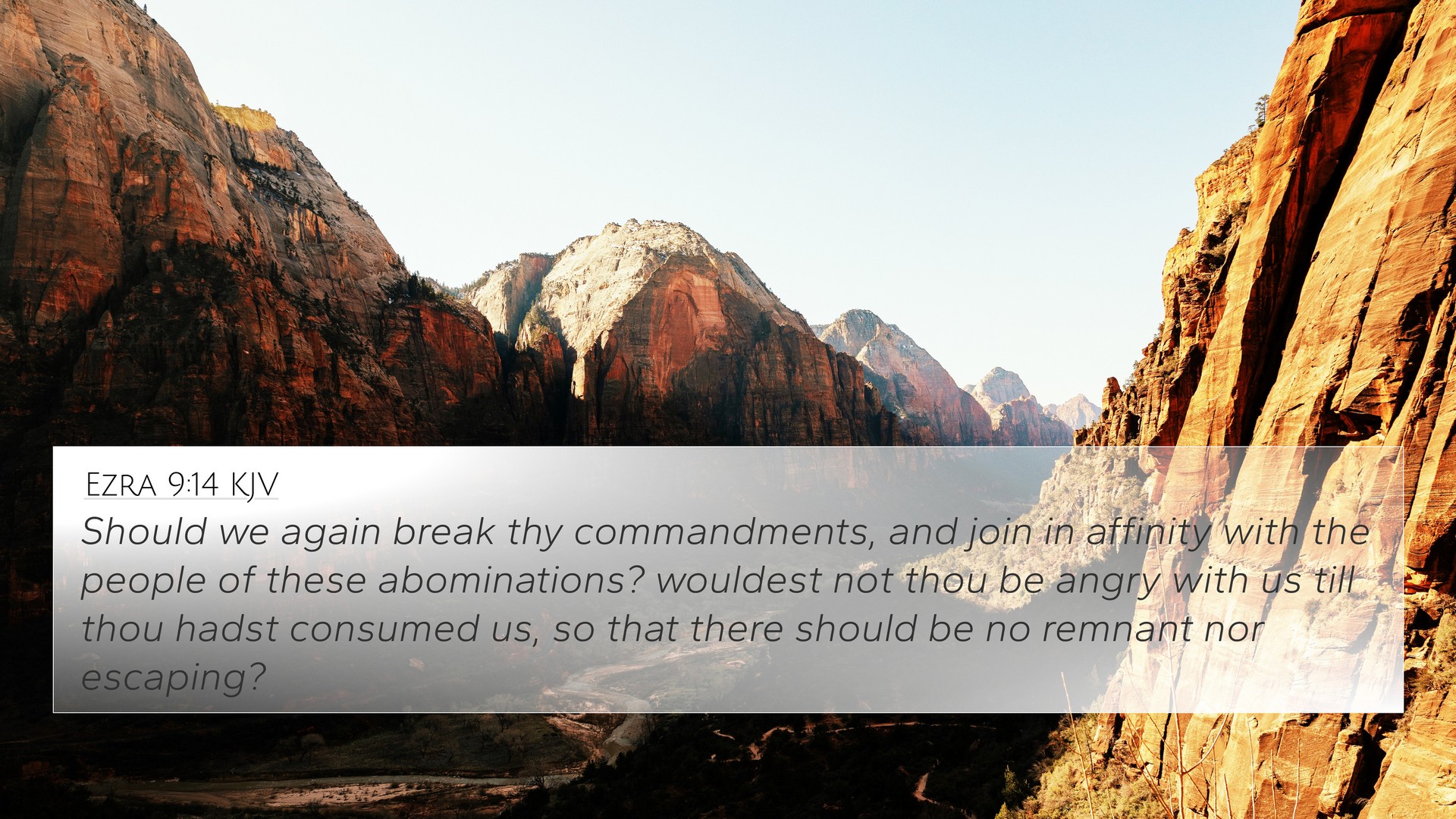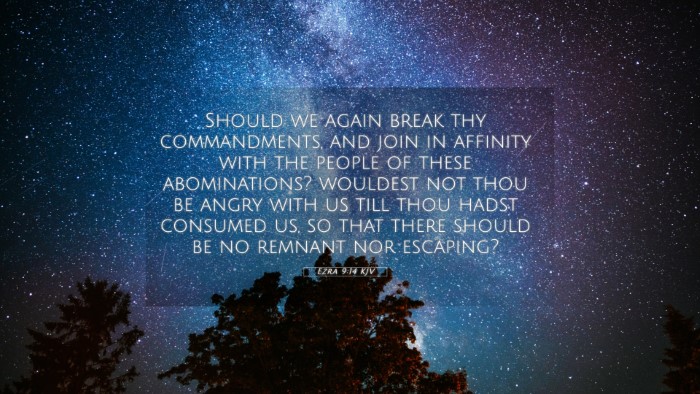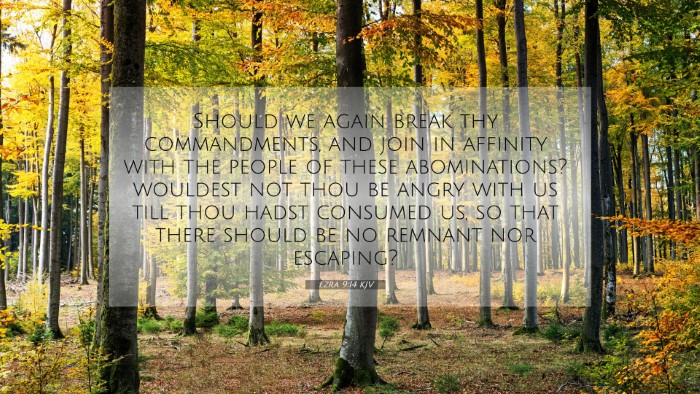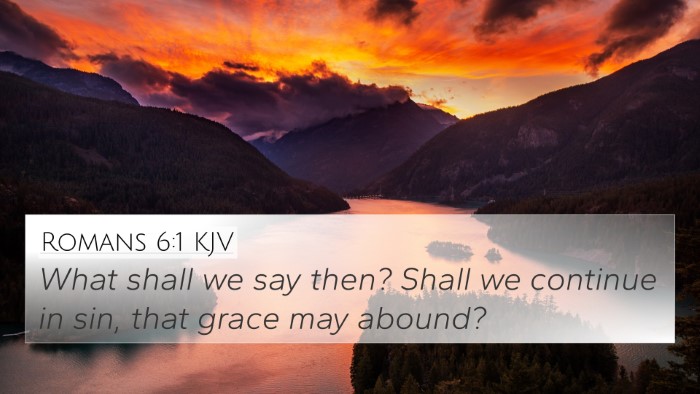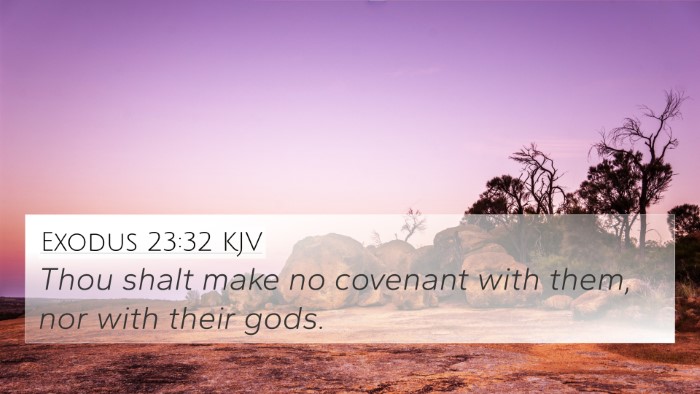Old Testament
Genesis Exodus Leviticus Numbers Deuteronomy Joshua Judges Ruth 1 Samuel 2 Samuel 1 Kings 2 Kings 1 Chronicles 2 Chronicles Ezra Nehemiah Esther Job Psalms Proverbs Ecclesiastes Song of Solomon Isaiah Jeremiah Lamentations Ezekiel Daniel Hosea Joel Amos Obadiah Jonah Micah Nahum Habakkuk Zephaniah Haggai Zechariah MalachiEzra 9:14 Similar Verses
Ezra 9:14 Cross References
Should we again break thy commandments, and join in affinity with the people of these abominations? wouldest not thou be angry with us till thou hadst consumed us, so that there should be no remnant nor escaping?
Uncover the Rich Themes and Topics of This Bible Verse
Listed below are the Bible themes associated with Ezra 9:14. We invite you to explore each theme to gain deeper insights into the Scriptures.
Ezra 9:14 Cross Reference Verses
This section features a detailed cross-reference designed to enrich your understanding of the Scriptures. Below, you will find carefully selected verses that echo the themes and teachings related to Ezra 9:14 KJV. Click on any image to explore detailed analyses of related Bible verses and uncover deeper theological insights.
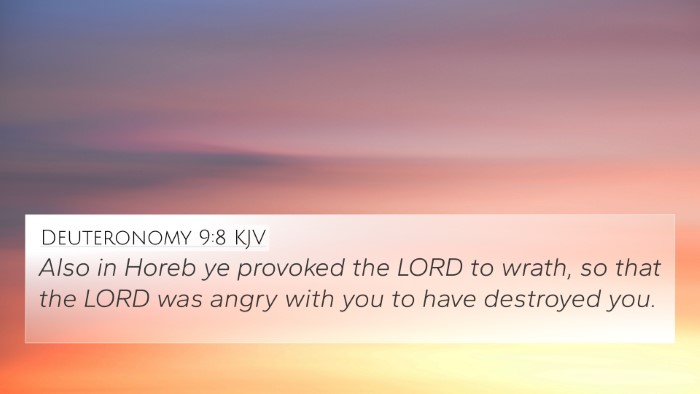
Deuteronomy 9:8 (KJV) »
Also in Horeb ye provoked the LORD to wrath, so that the LORD was angry with you to have destroyed you.
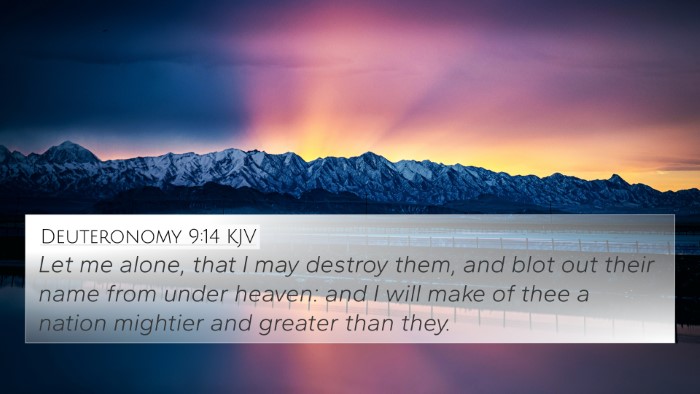
Deuteronomy 9:14 (KJV) »
Let me alone, that I may destroy them, and blot out their name from under heaven: and I will make of thee a nation mightier and greater than they.
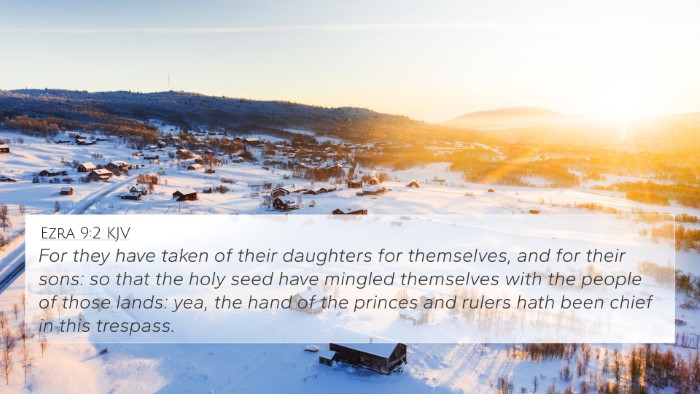
Ezra 9:2 (KJV) »
For they have taken of their daughters for themselves, and for their sons: so that the holy seed have mingled themselves with the people of those lands: yea, the hand of the princes and rulers hath been chief in this trespass.
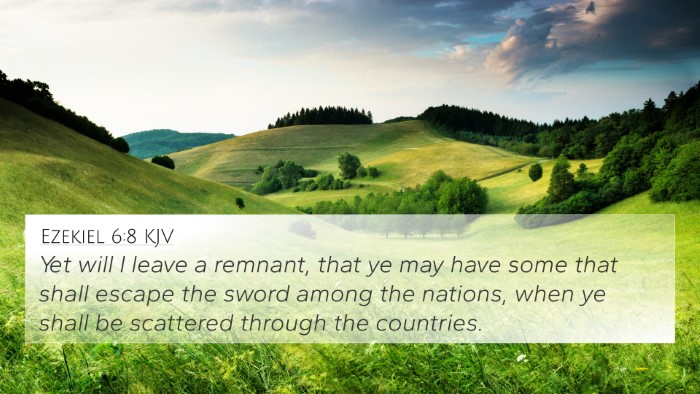
Ezekiel 6:8 (KJV) »
Yet will I leave a remnant, that ye may have some that shall escape the sword among the nations, when ye shall be scattered through the countries.
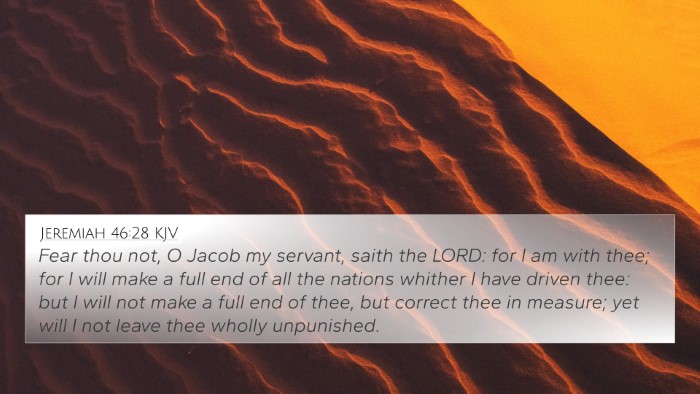
Jeremiah 46:28 (KJV) »
Fear thou not, O Jacob my servant, saith the LORD: for I am with thee; for I will make a full end of all the nations whither I have driven thee: but I will not make a full end of thee, but correct thee in measure; yet will I not leave thee wholly unpunished.
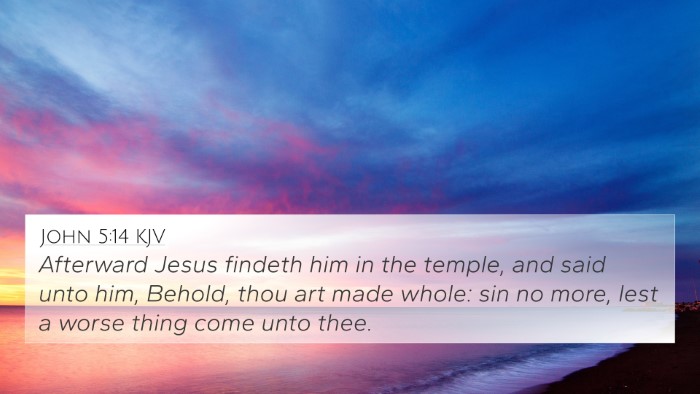
John 5:14 (KJV) »
Afterward Jesus findeth him in the temple, and said unto him, Behold, thou art made whole: sin no more, lest a worse thing come unto thee.
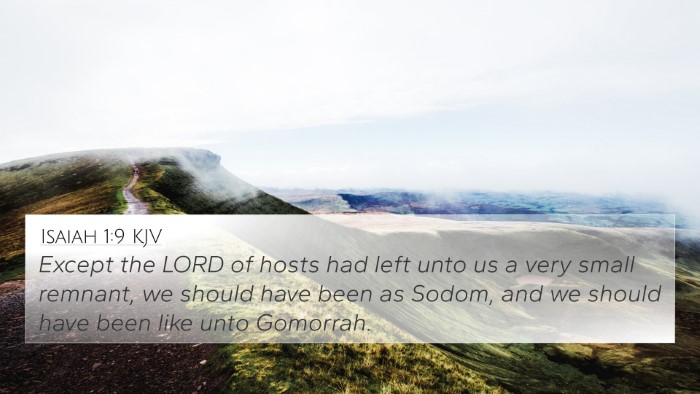
Isaiah 1:9 (KJV) »
Except the LORD of hosts had left unto us a very small remnant, we should have been as Sodom, and we should have been like unto Gomorrah.

Nehemiah 13:23 (KJV) »
In those days also saw I Jews that had married wives of Ashdod, of Ammon, and of Moab:
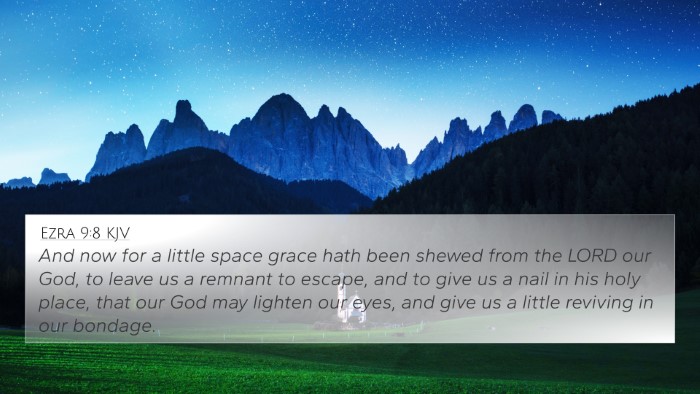
Ezra 9:8 (KJV) »
And now for a little space grace hath been shewed from the LORD our God, to leave us a remnant to escape, and to give us a nail in his holy place, that our God may lighten our eyes, and give us a little reviving in our bondage.
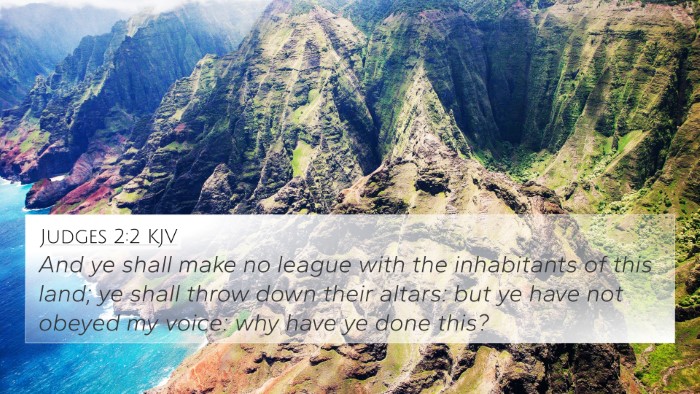
Judges 2:2 (KJV) »
And ye shall make no league with the inhabitants of this land; ye shall throw down their altars: but ye have not obeyed my voice: why have ye done this?
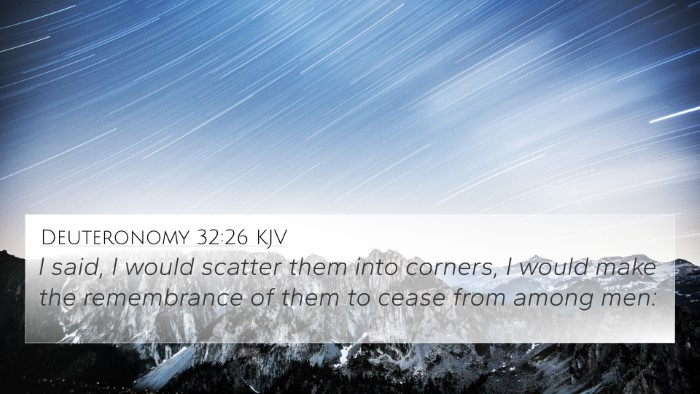
Deuteronomy 32:26 (KJV) »
I said, I would scatter them into corners, I would make the remembrance of them to cease from among men:
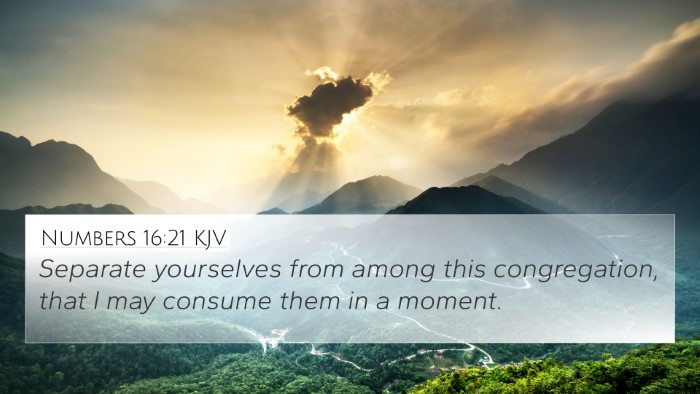
Numbers 16:21 (KJV) »
Separate yourselves from among this congregation, that I may consume them in a moment.
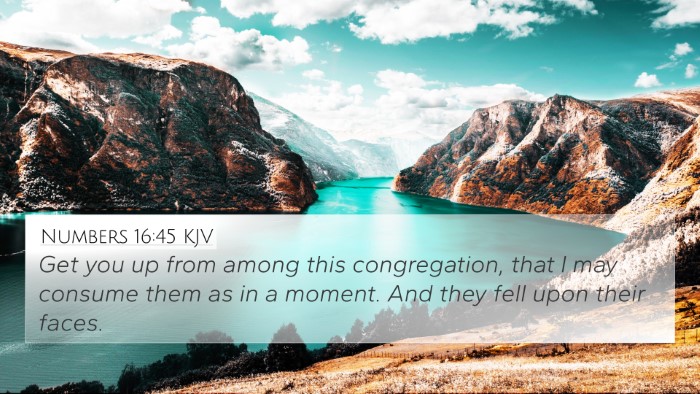
Numbers 16:45 (KJV) »
Get you up from among this congregation, that I may consume them as in a moment. And they fell upon their faces.
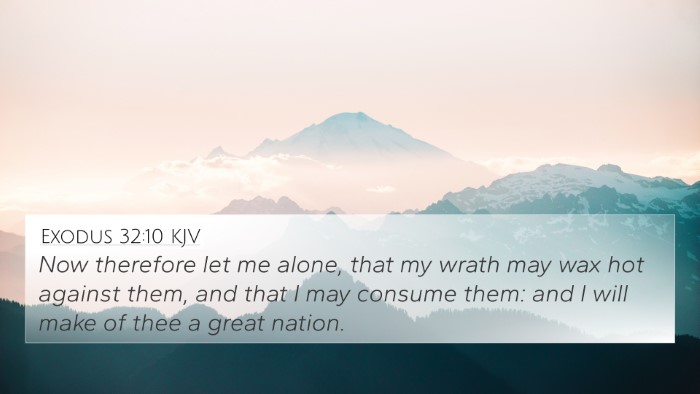
Exodus 32:10 (KJV) »
Now therefore let me alone, that my wrath may wax hot against them, and that I may consume them: and I will make of thee a great nation.
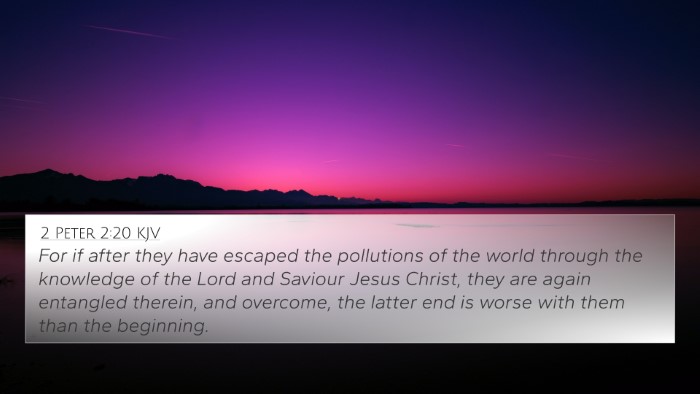
2 Peter 2:20 (KJV) »
For if after they have escaped the pollutions of the world through the knowledge of the Lord and Saviour Jesus Christ, they are again entangled therein, and overcome, the latter end is worse with them than the beginning.
Ezra 9:14 Verse Analysis and Similar Verses
Understanding Ezra 9:14
Ezra 9:14 reads: "Shall we again break thy commandments, and join in affinity with the people of these abominations? wouldest not thou be angry with us till thou hadst consumed us, so that there should be no remnant nor escaping?" This verse reflects a deep concern for maintaining the holiness and separation that God requires of His people.
Meaning and Insights
This passage is a part of Ezra’s prayer of confession, where he is acknowledging the grievous sins of the people of Israel. The following insights, drawn from public domain commentaries by Matthew Henry, Albert Barnes, and Adam Clarke, provide a comprehensive understanding of this verse:
- Context of Confession:
Ezra is deeply aware of the sinfulness of the people and their tendency to stray from God's commandments. This recognition emphasizes the importance of repentance and humility before God.
- Covenantal Relationships:
Ezra raises the question of whether the Israelites should once again break God's commandments by intermarrying with foreigners who worship idols. This illustrates the severe consequences of abandoning God's laws.
- Divine Wrath:
The reference to God’s anger indicates the seriousness of unrepented sin and its potential to lead to destruction. Ezra recognizes that continued disobedience could lead to God’s wrath consuming them.
- The Call for Remnant:
The mention of a "remnant" reflects the hope that there remains a group of faithful individuals, despite the widespread sinfulness. This concept of the remnant is also echoed throughout scripture, providing a thread of hope across the narrative of judgment.
Related Bible Verse Cross-References
Several other scriptures enhance the understanding of Ezra 9:14 through thematic connections:
- Deuteronomy 7:2: A warning against intermarriage with pagan nations, underscoring the seriousness of God's command.
- Jeremiah 25:7: God’s warning to Israel regarding their disobedience and the consequences that would follow.
- Nehemiah 13:25: Illustrates a similar theme where Nehemiah confronts the people for marrying foreign women.
- 2 Corinthians 6:14: The New Testament counterpart that emphasizes not being unequally yoked with unbelievers.
- Psalm 106:29: Discusses the anger of the Lord against His people due to their idolatry and sin.
- Isaiah 1:9: The concept of a remnant being preserved, connecting back to Ezra's concern.
- Revelation 3:2: A call to awaken the faithful remnant in the church, paralleling themes of preservation.
Interpretative Themes
Throughout the biblical narrative, themes of divine mercy, judgment, and the necessity of covenant faithfulness to God resonate profoundly in Ezra 9:14. Each of these themes ties into broader biblical teachings:
- Repentance: Essential for restoration with God.
- Holiness: The importance of adhering to God's standards in personal and communal life.
- Judgment: The consequences of sin as a recurring theme in scripture.
- Restoration: God’s desire for His people to return to Him, maintaining the promise of a faithful remnant.
Conclusion
In summary, Ezra 9:14 encapsulates a plea for holiness, awareness of sin, and the dire need for a faithful remnant. Understanding this verse, along with its cross-references and thematic explorations, unveils the rich tapestry of God's interactions with His people and the overarching narrative of redemption found throughout scripture.
